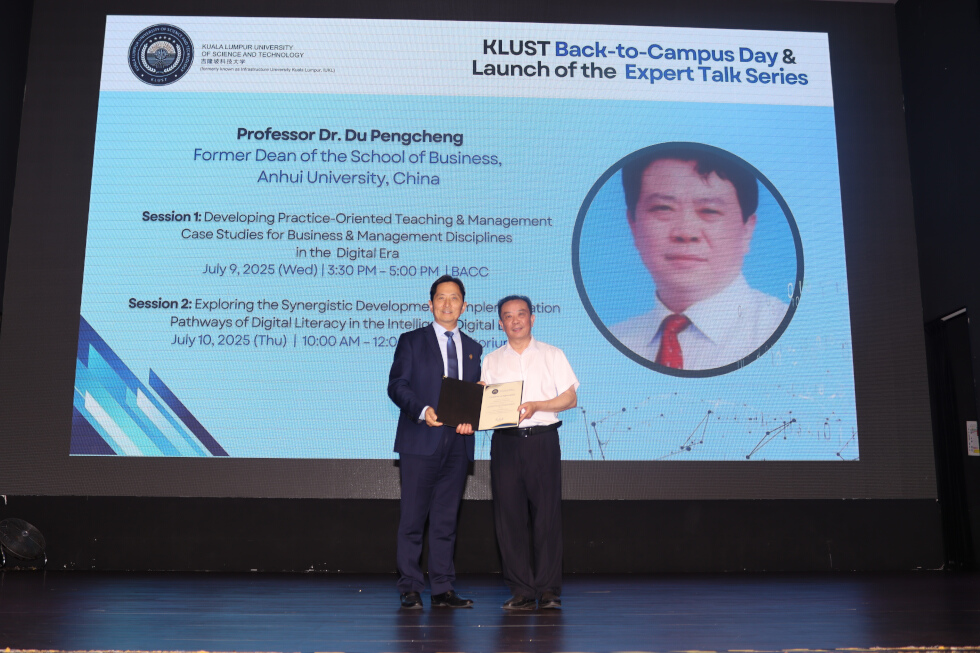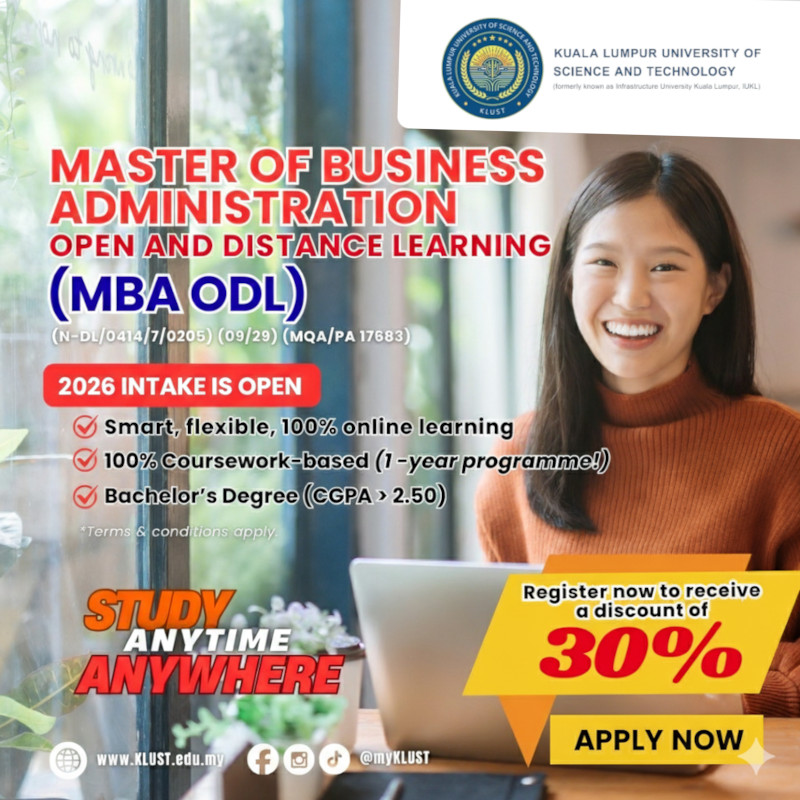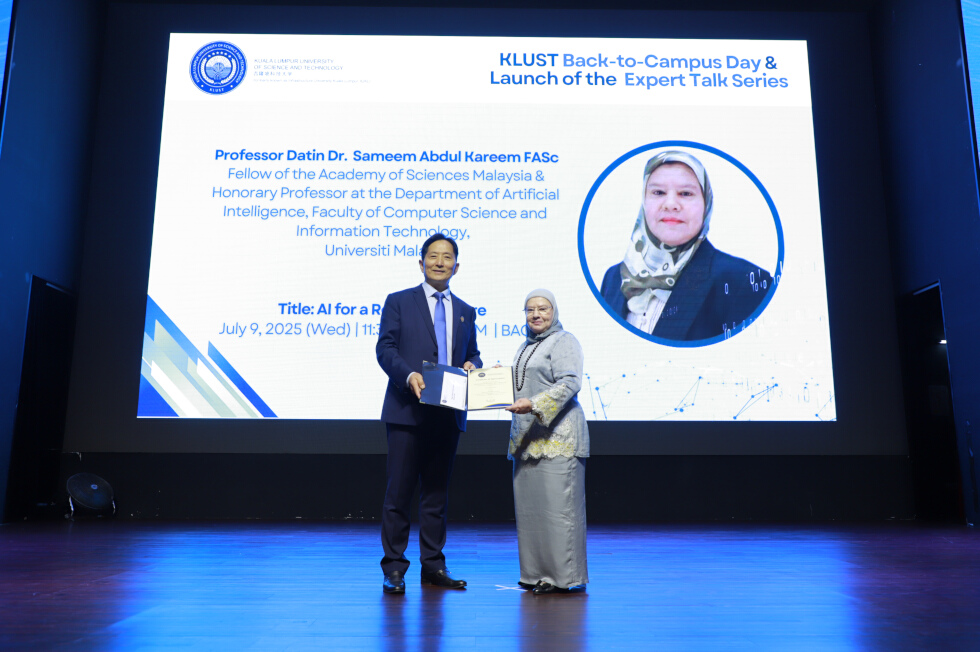
Kajang, July 14, 2025 – The opening day of the Expert Talk Series at Kuala Lumpur University of Science and Technology (KLUST) centered on the transformation of higher education within the ASEAN region, with three distinguished scholars addressing critical issues from the perspectives of policy formation, digital competence, and artificial intelligence. Their insights reflected a unified call for integrative solutions that bridge institutional systems, technological advancement, and ethical governance.
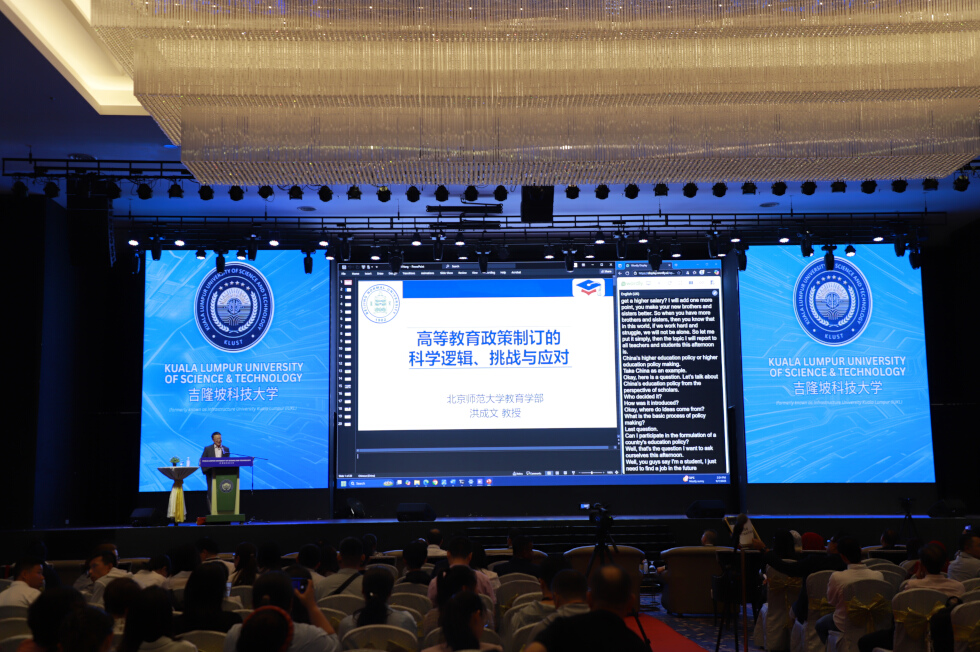
Professor Hong Chengwen, from Beijing Normal University’s Faculty of Education and Institute of Higher Education, delivered a keynote titled Strategic Logic, Challenges, and Solutions in Higher Education Policy-Making.
A seasoned advisor and architect of major national education initiatives, Professor Hong introduced his “Cauldron Theory” to illustrate the complexity of the policy-making process. He likened policy formulation to brewing medicinal soup, where stakeholders—ministries, academics, and private enterprises—each contribute their own “ingredients” or demands, often resulting in a final policy that drifts from scientific logic. As a case in point, he cited the formulation of China’s 2010 National Education Plan, a process that engaged over 60,000 participants globally, including scholars from Chinese embassies abroad. This, he argued, demonstrates how large-scale knowledge mobilization can enhance the legitimacy and scientific grounding of policy. Professor Hong emphasized the vital role of think tanks as “knowledge brokers,” capable of navigating competing interests and influencing decision-making through three principal approaches: direct engagement with ministerial departments, strategic communication via authoritative media such as regional Xinhua bureaus, and the delivery of precise, evidence-based policy recommendations.
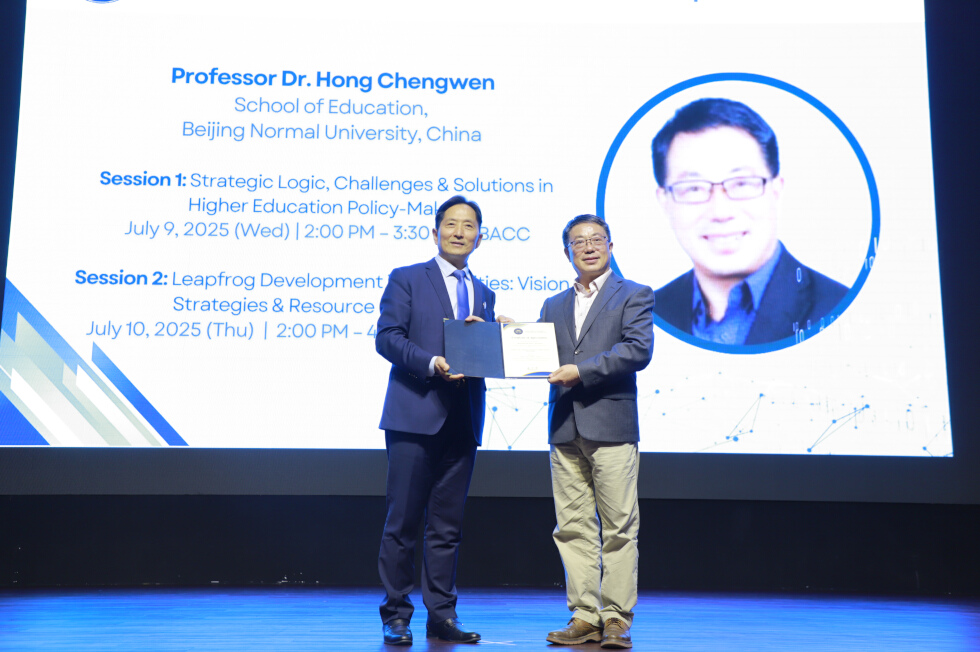
Professor Dr. Du Pengcheng, a leading academic at Anhui University and director of its Enterprise Management Research Center, presented his address titled: Exploring the Synergistic Development and Implementation Pathways of Digital Technology and Digital Literacy in the Intelligent Digital Era.
Drawing upon data from the 2024 National Digital Literacy Survey—which surveyed 2.72 million respondents—Professor Du identified key deficits among ASEAN educators, including insufficient digital skills that diminish classroom interactivity and increase exposure to ethical risks. Students, meanwhile, suffer from a disconnect between theoretical knowledge and practical application, as well as a decline in critical thinking abilities. Based on an in-depth, two-year case study of digital transformation at Gujing Group involving interviews with more than forty senior executives, Professor Du proposed a “Three-Classroom Integration” model. This initiative involves restructuring the curriculum to include compulsory courses such as Big Data Analytics, establishing national-level experimental teaching centers for applied management training, and fostering interdisciplinary innovation through competitions. The model has already demonstrated tangible results at Anhui University, including a 40 percent increase in student competition awards and recognition through the 2023 National Teaching Achievement Award (Second Prize).
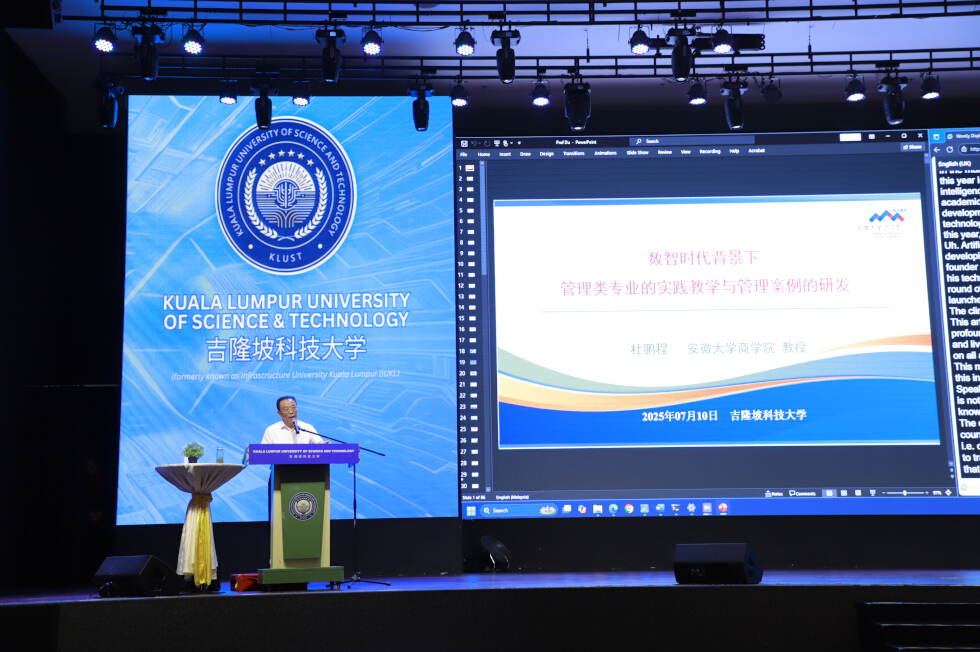
Professor Sameem Abdul Kareem, a renowned AI expert and Professor Emerita at the University of Malaya, addressed the forum with her presentation AI for a Resilient Future.
With a distinguished career spanning medical AI, machine learning, and public digital policy, Professor Sameem underscored the transformative potential of artificial intelligence by referring to its breakthroughs in fields such as structural biology and climate science. Notably, she cited AlphaFold’s successful mapping of over 200 million protein structures and the use of AI in enhancing the accuracy of climate disaster early warning systems. She proposed a three-dimensional framework centered on smart, sustainable, and scalable development. On the smart dimension, AI facilitates predictive maintenance in supply chains. From a sustainability perspective, blockchain technology supports the building of circular economies. As for scalability, she showcased how modular AI solutions can be customized for sectoral application, such as in Thailand’s automotive industry and Indonesia’s textile sector. At the same time, she cautioned against unregulated AI deployment, pointing to issues like algorithmic bias that can lead to discrimination in recruitment, and opaque decision-making in medical AI that may compromise patient safety. Professor Sameem advocated the establishment of a cross-border AI ethics committee to ensure international standards of fairness, accountability, and transparency. Together, the three scholars presented a coherent and interdependent framework for the future of ASEAN higher education. Policy-making, they argued, must overcome the inertia of vested interests through evidence-driven mediation. Technological advancement must be matched with widespread improvements in digital literacy to maximize its benefits, and artificial intelligence must be developed within an ethical framework that protects societal well-being while enabling innovation.
